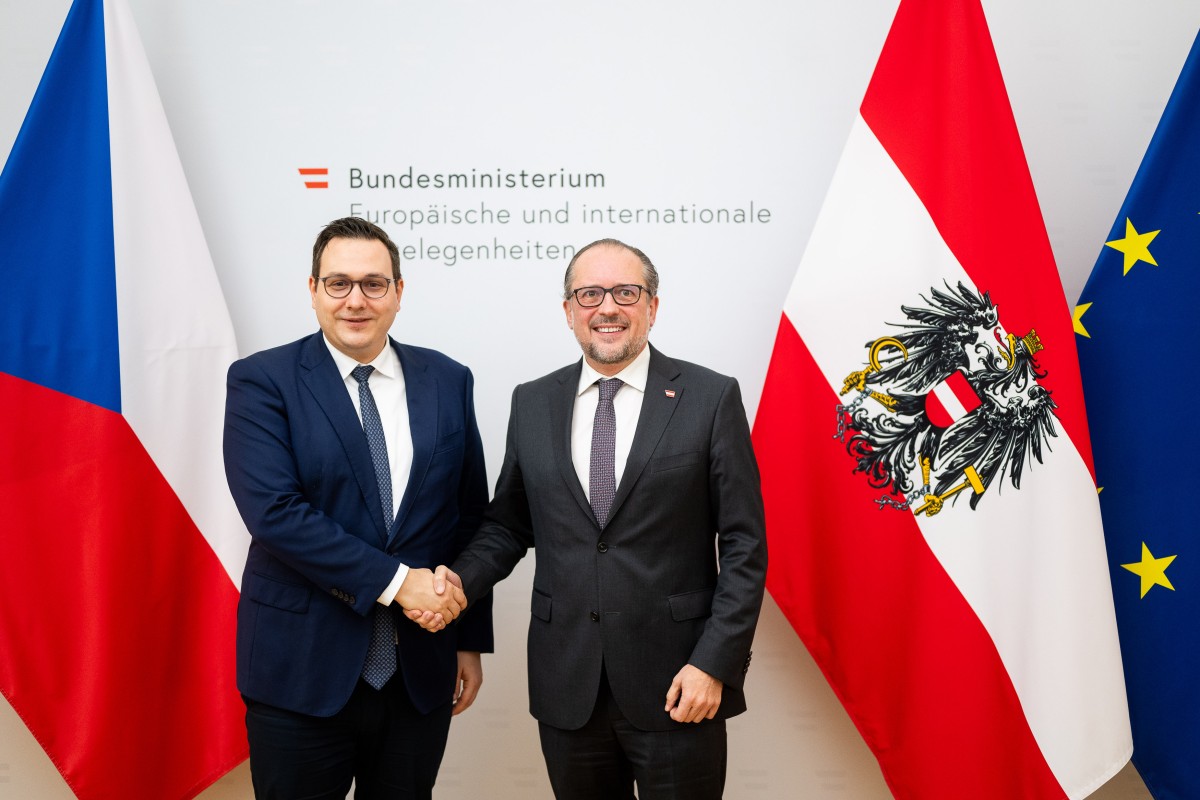Sponsored Content
Austria and Czech Republic for European Stability and Security
During a pivotal meeting in Vienna, Austrian Foreign Minister Alexander Schallenberg and his Czech counterpart Jan Lipavský showcased a united front on several critical international issues.
 Austrian Foreign Minister Alexander Schallenberg (r.) meets his Czech counterpart Jan Lipavský (l.) in Vienna. / Picture: © BMEIA Bundesministerium für Europa, Integration und Äußeres / Gruber / Flickr Attribution 2.0 Generic (CC BY 2.0)
Austrian Foreign Minister Alexander Schallenberg (r.) meets his Czech counterpart Jan Lipavský (l.) in Vienna. / Picture: © BMEIA Bundesministerium für Europa, Integration und Äußeres / Gruber / Flickr Attribution 2.0 Generic (CC BY 2.0)
Amidst a time of global unrest, both ministers expressed staunch support for Israel's right to self-defense following a major offensive by Hamas. They also voiced their backing for the expansion of the European Union to include Ukraine, Moldova, and the Western Balkans, emphasizing the EU's role in counteracting a "ring of fire" of conflicts surrounding it with a "ring of…
or Log In
Fast News Search





